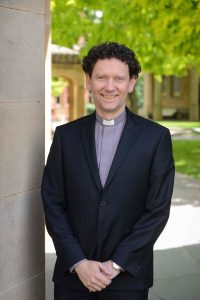
Those of us who are Christians sometimes look for God in the extraordinary and the miraculous. We look for big signs of God’s presence. We want to see miracles. We want to see the spectacular and the marvellous. The problem is … God usually doesn’t work that way. In fact, God is most easily noticed in the ordinary events of daily life.
One way of understanding God using non-religious language, which you may find helpful, is to think of God as “beauty”. Often when I see something truly beautiful, I think about God having made this beautiful thing. But for the Christian, God is not just the creator of everything that is beautiful – God is beauty. God is actually beauty itself.
Looking for beauty is a lot like looking for God. We often think that we need to see the spectacular in order to see something beautiful. To see something beautiful, we sometimes think we need to get out into the middle of the most beautiful scenery in the world, or see the absolute best musician on the planet, or look at the finest art there is.
Don’t misunderstand me, looking at these beautiful things is inspirational and we will almost certainly find beauty there.
During the holidays my son Alasdair went on a four-day wilderness hike in the Cradle Mountain-Lake St Clair National Park in Tasmania. His mate from university took him off the usual hiking trail onto a much less frequently used one. In other words, he took him on a much wilder path! They climbed up paths and reached peaks which only a handful of people do each summer. In fact, Alasdair was saying that if one of them had sprained an ankle or had a fall, it probably would have been at least three days before anyone else was likely to come up the same track!
There is no doubt that this is some of the most spectacular, beautiful country on Earth. It’s extraordinary. It’s isolated and wild. When you live in the city, it’s hard to believe this sort of country is here in Australia: relatively undisturbed, probably pretty much the same as it was at the time of Christ 2,000 years ago.
When we see beauty in its purest form, it can be hard to remember to look for it in our ordinary, daily lives. We think, or at least I know I do, that we need to visit places like Cradle Mountain National Park in order to see beauty at all. But that’s untrue. Beauty can also be found in our normal, daily lives: we just need to remember to pay attention.
There is a very noble tradition found Christianity and also in modern-day Judaism, which says, “God will be found in the ordinary events of daily life. Pay attention to the beauty around you, and then you will see God.”
Somewhere between 587 and 537 BC, some of the Jewish priests wrote down the story of creation, now found in the first chapter of Genesis. They researched and collected some much older stories of creation, which had mostly been told by word of mouth for generations amongst the Jewish people. These Jewish priests wanted to capture something of the goodness and the beauty of the creation they saw around them. They wanted to give the people of Israel hope: hope that God, who created the world and everything in it, also cared deeply about them.
But the story of creation, the story of how beautiful and good creation is, is not just a story about places like the wilderness of Tasmania. It’s also a story about the ordinary things we see in our daily lives, and how beautiful they are.
There are many examples: have you ever listened to a magpie’s song closely? It’s extraordinarily beautiful. When the magpies that live in the grounds of St Peter’s College call to me as I walk to work, it is beautiful. According to my research on magpies, they do actually remember who people are. So, I like to think, they know who I am; they recognise me when I walk past on my way to work. These kind of little events are all miracles, which express the beauty of God’s creation and his deep love for us; when we notice them, when we pay attention to them, they will point us to a deeper truth, that God loves us, incredibly so, and promises us an eternal life with him.
The Reverend Dr Theo McCall, School Chaplain
